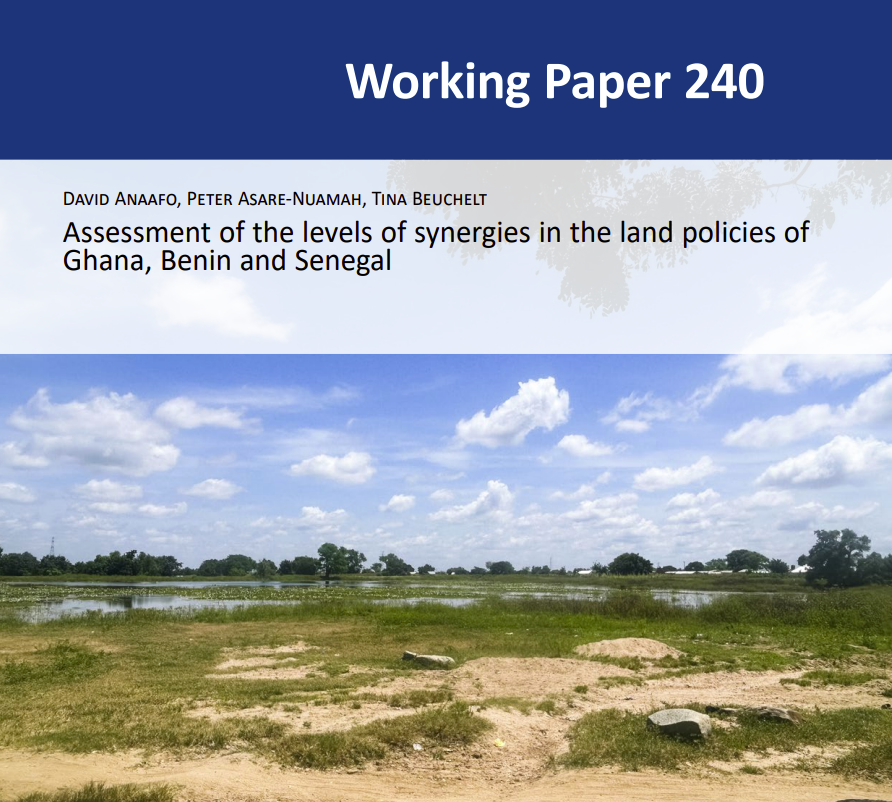Abstract
Various policies determine how land is accessed and used in many African countries. Often, the goals of these policies either diverge from, or reinforce each other in intricate ways. In the present study, we sought to understand the levels of synergies or otherwise, among various policies on land management and how they promote sustainable land management practices in Ghana, Benin and Senegal. This is important for any attempts at land tenure reforms in the wake of increasing land conflicts, rapid population growth, environmental degradation and climate change, hampering agricultural production. The study was undertaken through the review of published research work, policy documents and other grey literature in relation to the study countries. The study finds that in the three different countries, sustainable land management policies aim to promote equitable access to land through market-driven mechanisms. Mainly, the aim is to ensure easy access to land for commercial agriculture and other forms of investments. The policies, however, contradict each other in different ways. In Ghana, for instance, biodiversity conservation, promotion of sustainable management of savannah woodland and the promotion of ecotourism are inconsistent with the quest to promote small and medium enterprises in forest and wildlife resources. In Benin, the pursuit of resource conservation contradicts with the national goal for agricultural intensification and commercialization. And in Senegal, while national land policy objectives are implemented through the decentralized governmental structures, those on agriculture and the environment are implemented through centralized systems. We also find that all countries have attempted to decentralize the governance of land and natural resources, even though there is evidence of centralization especially with regards to mineral resources. Among the three countries, Benin stands out as one with deliberate policy pronouncements on the land access and ownership rights of women and other marginalized groups. Critical issues such as environmental degradation and climate change have not received any serious attention in the policies of the study countries. It is recommended that future policy formulation or review should be participatory including a diverse range of stakeholders such as gender experts, youth groups, civil society, traditional authority, and scientists. Policies should also deal with cross-cutting issues, including environmental degradation.
